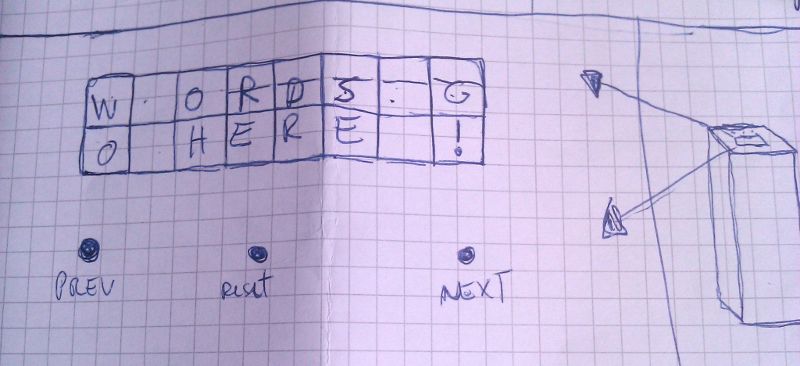User:Laurier Rochon/notes/projectIII draft
Instructions to create a conceptual text compressor
1/ Imagine a text, any text. This could be a text you enjoy, a poem you wrote or a speech you gave. This text will be the object of compression, our subject. It has to be of a certain length (at least several lines, perhaps a few pages), but there are no clear restrictions on the length you choose.
2/ Go through all the sentences of your text. When you encounter a word which could be represented by a synonym, or similar word or equivalent idea that is longer than the original, perform the replacement. Do this for all words in your text, wherever the rule can apply.
3/ To emphasize certain adjectives, capitalize them. It is not necessary to do this for every single adjective in the text, ultimately the adjectives you choose to replace is at your discretion.
4/ Every time a word is repeated in the text, add the number of times it has appeared in the text up to now in brackets, after the word. Also, add a reference to the previous lines on which it has appeared, in a second pair of brackets (after the initial pair), using a list separated by commas.
5/ When you encounter at least two consecutive words which start with the same letter, transform them into multiple choice options for the reader. These choices should be on their own separate line in the text, with small open circles to their left for the reader to easily identify them.
6/ By observing the order of words of your text, add probable sentences to it by choosing the most likely combination of consecutive next words and compound a statistically probable sentence to your current text. You can start these sentences by picking any given word in the text, or by commencing with the first words of sentences.
7/ Use spaces before and after certain words which should be emphasized. Use an amount of space which is proportionally equal to the importance of the word you wish to highlight. This should give the reader extra time and space to ponder its importance.
Just an idea...
Have you ever read Ulysses from start to end? Didn't think so.
I sure haven't. But I would love to. At this point, I think I'll quote Lieven to mirror my thoughts on this plan : "I started, read about half, and then pppppfffftttttmmmmm..."
That's right, it's quite lengthy/chunky, both in its physicality and matter, or so I'm told. I would love to make this huge volume, and others alike, more accessible to us who, let's face it, have no time for 700+ pages of dense literature.
How? Well my research on constructed languages (and the essay that will ensue) will be in part exploring the 'compression' aspect of some of these "conlangs". In other words, how to synthesize thought and language in a more concise way, both grammatically and syntactically. By eliminating redundancy, enlarging phonology, adding letters to the alphabet and devising a stupendously complex syntactic system, it's possible to write almost one "letter" for every "word" - in such a way that every "word" would equal a complete "sentence". A whole "sentence" could represent a "paragraph", and so on...
Furthermore, the supremacy of Twitter's short 140 char messages, Facebook's limit on statuses and comments (make 'notes' if you have textual logorrhea), the 'usability' features of Tumblr (aka, don't think, POST!) show us that such things as multi-hundred page novels simply do not belong in this era anymore. Maybe my cynicism is not all too clear yet, but my goal is to fully embrace this culture of speed and efficiency in a project that will make you speed read like you have never before.
My contribution
What I propose is the following : by using natural language processing tools (NLTK), I can condense every single page of text to just a few words. By selecting recurring/important nous and verbs, one can get the gist of the page by carefully reading these words only. Then, I would present the book on a 16x2 LCD screen with 3 buttons - page forward, page backwards and reset (go to beginning of the book). This way, one could presumably read Ulysses in approximately 20-30 minutes and then move on with their lives not feeling awkward from having not read one of the most classic works of the 20th century. Welcome to the future of e-books. Voilà!
To show you that I'm serious
Here's what the physical installation would look like :
What's that little thing on the right? A ~4.5 foot altar that would usually hold a book. Screen and buttons are built into the top.
The screen looks like so :
Only it would have the awesomely compressed text of Ulysses on it.


